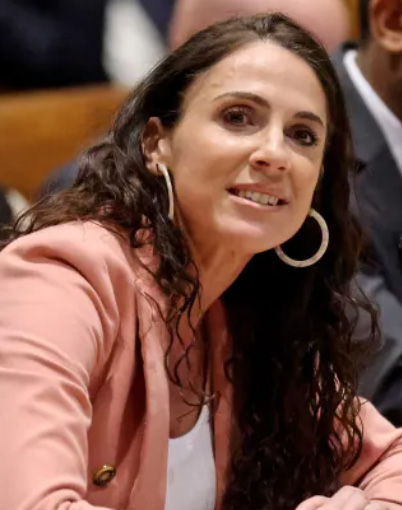
Battenfeld: Diana DiZoglio pro-union audit raises questions about conflict of interest
Diana DiZoglio’s pro-union audit of the rideshare industry raises questions about whether she’s using her taxpayer-funded office for political purposes and playing favorites with campaign supporters.
The release of the audit appears to have been partly coordinated with the Teamsters and a pro-union legislator and used a study by a union advocacy group to reach its conclusion that rideshare companies were shortchanging the state by hundreds of millions of dollars by not classifying its drivers as employees.
For someone who prides themselves on independence and political courage, DiZoglio’s rideshare audit appears to show neither.
DiZoglio’s 15-page analysis – which is purely hypothetical – provides ammunition against a referendum question later this year that will determine whether Uber, Lyft and companies like Doordash get to keep classifying drivers as independent contractors and not employees.
The audit heavily relied on data from a study done by the Drivers Demand Justice Coalition, which is leading a union campaign to classify drivers as employees.
The Teamsters’ Chapter 25 PAC has been a regular contributor to DiZoglio’s campaign fund, giving the maximum $500 every year since 2021, campaign finance records show.
The union endorsed DiZoglio for state auditor in the 2022 primary, urging voters to support her.
The Teamsters have been heavily promoting the audit on social media and in press releases for the last few days, claiming it shows how rideshare companies have “cheated” the state out of hundreds of millions of dollars in employee protection programs.
“The Massachusetts State Auditor’s report exposes the true cost of worker misclassification. Companies like Uber and Lyft are exploiting workers and taxpayers in the name of innovation and convenience,” Teamsters General President Sean O’Brien said. “These greedy corporations must be held accountable.”
DiZoglio appears to have shared the results of the audit several weeks ago with state Sen. Lydia Edwards, who is an opponent of the rideshare companies and is sponsoring legislation to classify drivers as employees with full benefits and protections.
Edwards shared some of the audit’s findings in a Boston Globe story published April 27.
A spokesman for the Teamsters also offered to arrange interviews with DiZoglio after the audit was released.
DiZoglio’s office released a statement to the Herald responding to questions about the audit, which was led by the office’s Division of Local Mandates, saying, “This particular issue was raised to us by Senator Lydia Edwards who pointed to how other states have taken meaningful steps, in recent years, to establish fair labor practices, ensure adequate contributions to state benefit programs and better define the relationship between TNCs and their drivers.”
The state’s conflict of interest law directs public officials to avoid even the “appearance” of conflict.
But the audit raises questions about whether DiZoglio’s allegiance and duties are to taxpayers or campaign supporters like the Teamsters.
A spokesman for the group Flexibility and Benefits for Massachusetts Drivers, which is sponsoring the ballot question on behalf of Uber and Lyft, called the audit’s theoretical conclusions about $266 million in missed benefits “wildly flawed” because it uses data from the pro-union study funded by labor groups.
“A reputable, professional auditor would consider all the relevant datasets before reaching conclusions, rather than beginning with a predetermined, politically-motivated conclusion first and building out an analysis to achieve it,” a statement from the rideshare companies said.
Taxpayers deserve to know if the auditor – who is leading a campaign to audit the Legislature – is using her office to support her political friends and punish enemies.

